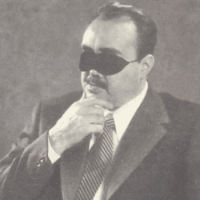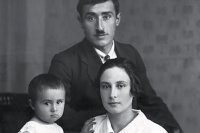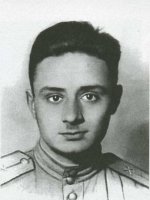 September 7 marks the 100th anniversary of the birth of the cult Soviet poet of the 60-70s Asadov Eduard Arkadyevich.
September 7 marks the 100th anniversary of the birth of the cult Soviet poet of the 60-70s Asadov Eduard Arkadyevich."I can really wait for you,
Long, long and true, true
And I can't sleep at night
A year, and two, and all my life, I guess.
Let the leaves of the calendar
They will fly around like the leaves of a garden,
Just to know that everything is not in vain,
What do you really need!…”
Who among us has not met these lines of Eduard Asadov!
In the 80s there was no girl who did not keep a notebook with Asadov's poems. Schoolgirls copied poems to themselves in notebooks, then to each other. His poems, seemingly naive at first glance, are actually filled with great energy.
 Eduard Arkadyevich Asadov was born on September 7, 1923 in Turkmenistan into an Armenian family. “My first childhood impressions forever included the narrow streets of a Central Asian town, colorful noisy bazaars. And a lot more golden color: the sun, fruits and sands, ”the poet wrote in his memoirs.
Eduard Arkadyevich Asadov was born on September 7, 1923 in Turkmenistan into an Armenian family. “My first childhood impressions forever included the narrow streets of a Central Asian town, colorful noisy bazaars. And a lot more golden color: the sun, fruits and sands, ”the poet wrote in his memoirs.After the death of his father, the family moved to Sverdlovsk, where his mother's parents lived. Grandfather was a historical figure. In his youth, he worked as a secretary for Chernyshevsky and retained his enthusiastic love for the great writer for the rest of his life. Here in the Urals, the poet's childhood passed. At the age of eight, he wrote his first poem. The boy loved to visit the Ural factories, he admired the beauty of work, the beauty of the kind and hearty smiles of a working person.
Then the mother was offered a job in Moscow, and the family moved to the capital. After calm and businesslike Sverdlovsk, Moscow seemed bright and hurried. The future poet went headlong into poetry, mugs. I thought about where to go: to the Literary or Theater Institute? But events changed all plans. The graduation ball at the 38th Moscow school was on June 14, 1941, and a week later - the war! Asadov volunteered for the front.
He fou ght as a gunner, later called "Katyusha". He fought well, dreamed of victory, and in between battles he wrote poetry. He wrote about the war, about love, shared lines with his colleagues, which supported their morale.
ght as a gunner, later called "Katyusha". He fought well, dreamed of victory, and in between battles he wrote poetry. He wrote about the war, about love, shared lines with his colleagues, which supported their morale.
 ght as a gunner, later called "Katyusha". He fought well, dreamed of victory, and in between battles he wrote poetry. He wrote about the war, about love, shared lines with his colleagues, which supported their morale.
ght as a gunner, later called "Katyusha". He fought well, dreamed of victory, and in between battles he wrote poetry. He wrote about the war, about love, shared lines with his colleagues, which supported their morale.In the battle for the liberation of Sevastopol on the night of May 3-4, 1944, he was seriously wounded. Then the hospital. Shrapnel from a shell that exploded next to him grazed his skull. The poet spent almost a month in a coma, underwent 12 operations. He survived but lost his sight. Between operations he wrote poetry.
After the war, in 1946, Asadov entered the Gorky Literary Institute. The first literary teachers were: Chukovsky, Surkov, Svetlov, Antokolsky. After graduating from the institute in 1951, his first book of poems, Light Roads, was published. During his creative life, the poet wrote 47 books. The last one was called "Don't Give Up, People!" And he did not give up until the moment when, on April 21, 2004, a heart attack claimed his life. Eduard Asadov was buried at the Kuntsevo cemetery in Moscow.
He wrote about peace and war, about nature and animals, about faith and unbelief. But first of all, Eduard Arkadyevich wrote about love. He was sure that only love can keep a person on the very edge.
“... And I can even laugh there,
Where the weak in spirit would howl with anguish! ... "


